Defamation cease and desist letter template
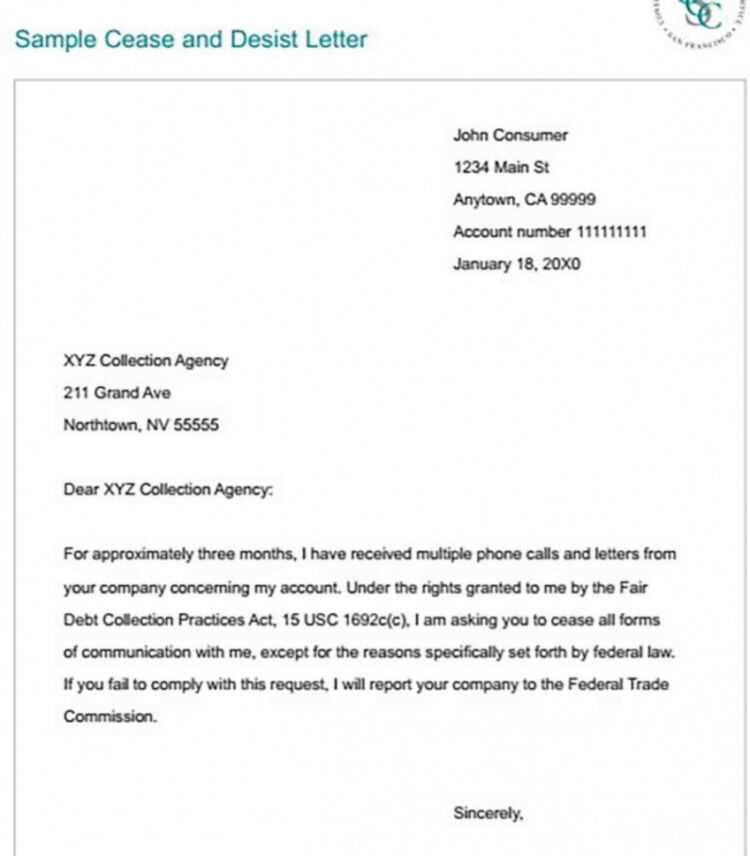
Take immediate action to protect your reputation by sending a defamation cease and desist letter. This letter serves as a formal request for the recipient to stop making harmful, false statements that damage your character. It clearly outlines the defamatory statements, the harm caused, and the legal consequences if the individual does not comply. A well-crafted letter can often resolve the issue without the need for further legal proceedings.
The first step is to be specific about the false statements. List the exact comments or actions that have been made and how they affect you. Use clear, straightforward language, and avoid unnecessary legal jargon. By focusing on the facts, the recipient will understand exactly what they have done wrong and the consequences they face if they don’t stop.
It’s also critical to mention the potential legal actions you may take if the defamation continues. These can include lawsuits for damages or even restraining orders, depending on the severity of the situation. The letter should make it clear that you will not hesitate to protect your reputation through legal channels if necessary.
By addressing the issue head-on with a cease and desist letter, you send a clear message that you are serious about defending your reputation. Taking this step early can often resolve the problem before it escalates further.
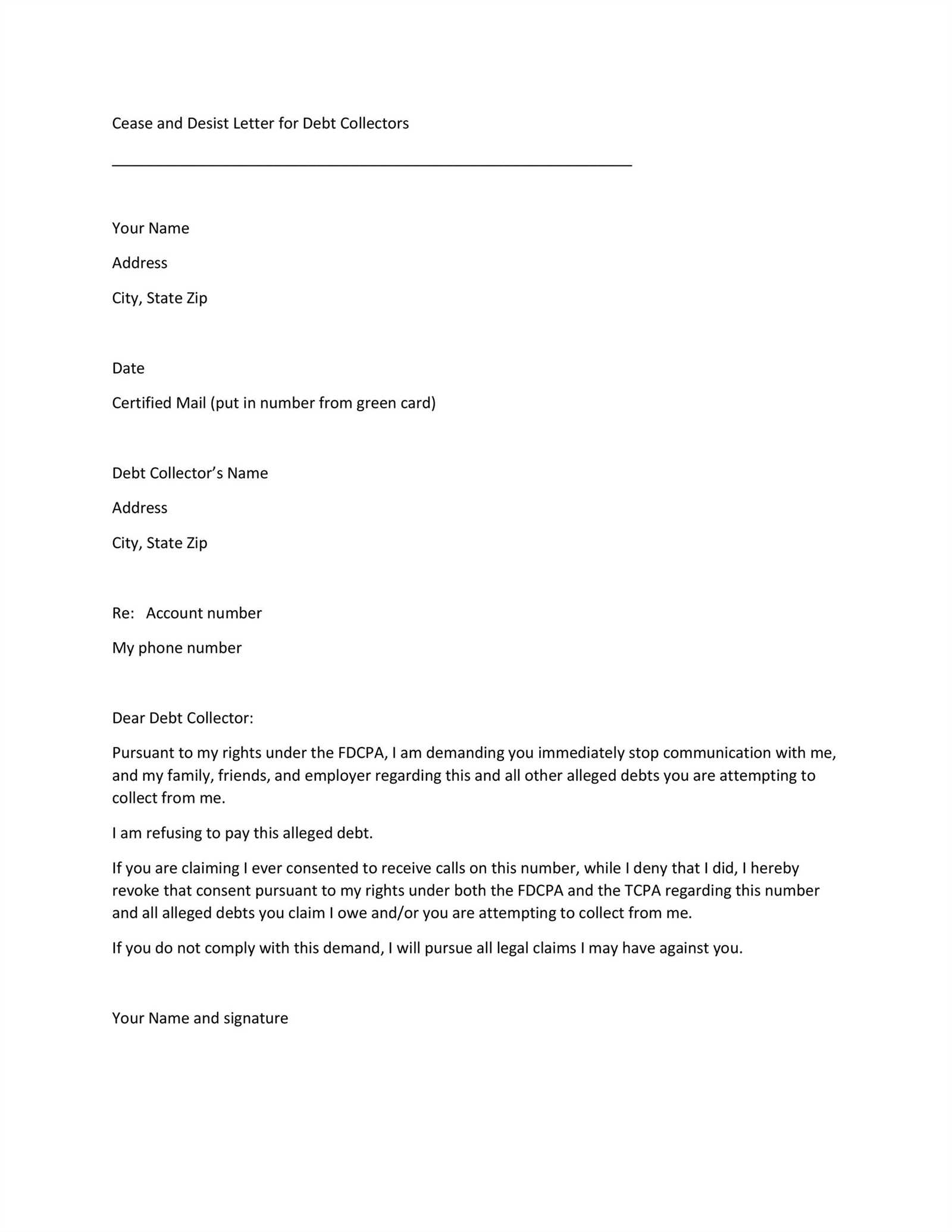
Here’s the Revised Version:
Begin by addressing the recipient by name, specifying their defamatory actions. State clearly the legal implications of their behavior and demand immediate cessation. Be direct in requesting the removal of the harmful content from all platforms or locations where it has been posted. Provide a deadline, typically within 10 days, to allow for compliance.
Make it clear that failure to comply will result in legal action, which could include filing a lawsuit for damages. Avoid vague language; specify the harm caused and the steps needed to rectify the situation. Use a formal tone but ensure the message remains professional and to the point.
End the letter by providing contact details for resolution and reiterating the expectation of immediate compliance. Ensure that all statements are backed by relevant legal references to make the document as strong as possible.
Defamation Cease and Desist Letter Template
Understanding the Legal Grounds for Defamation
Key Elements of a Cease and Desist Letter
How to Respond to Defamation Claims in Your Letter
When to Issue a Cease and Desist Letter
Consequences of Ignoring a Cease and Desist Demand
Next Actions After Sending the Letter
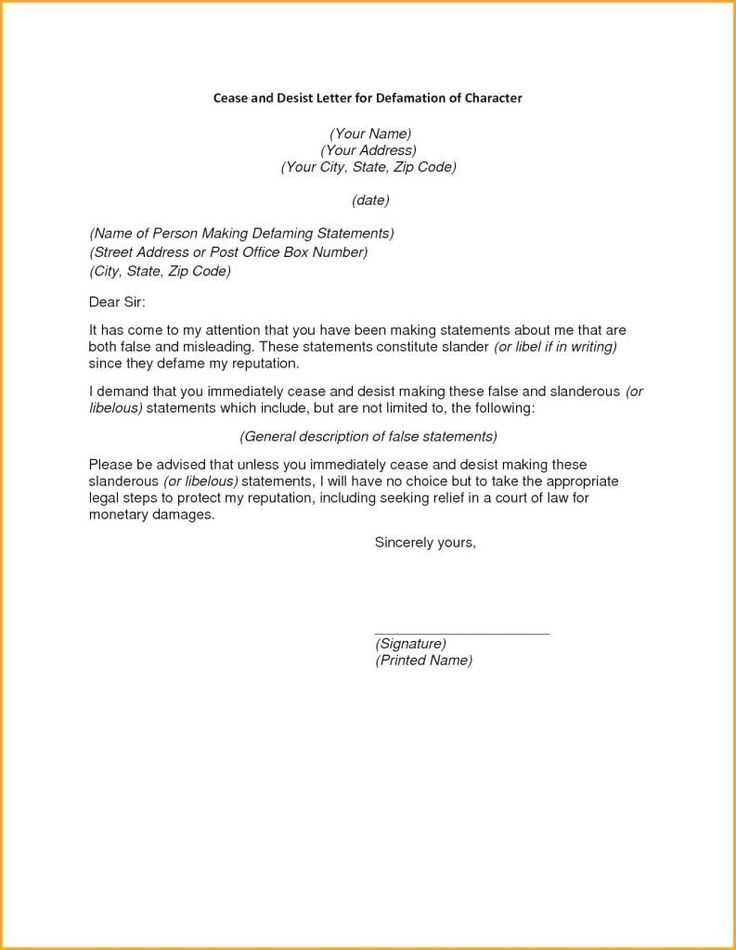
To address defamation effectively, clearly state the legal basis for your claim in the letter. Defamation involves false statements that harm your reputation. The law protects individuals from malicious statements that mislead the public, and you are entitled to defend your reputation by issuing a cease and desist letter. This letter serves as a formal request for the offending party to stop their defamatory behavior.
Key Elements of the Letter
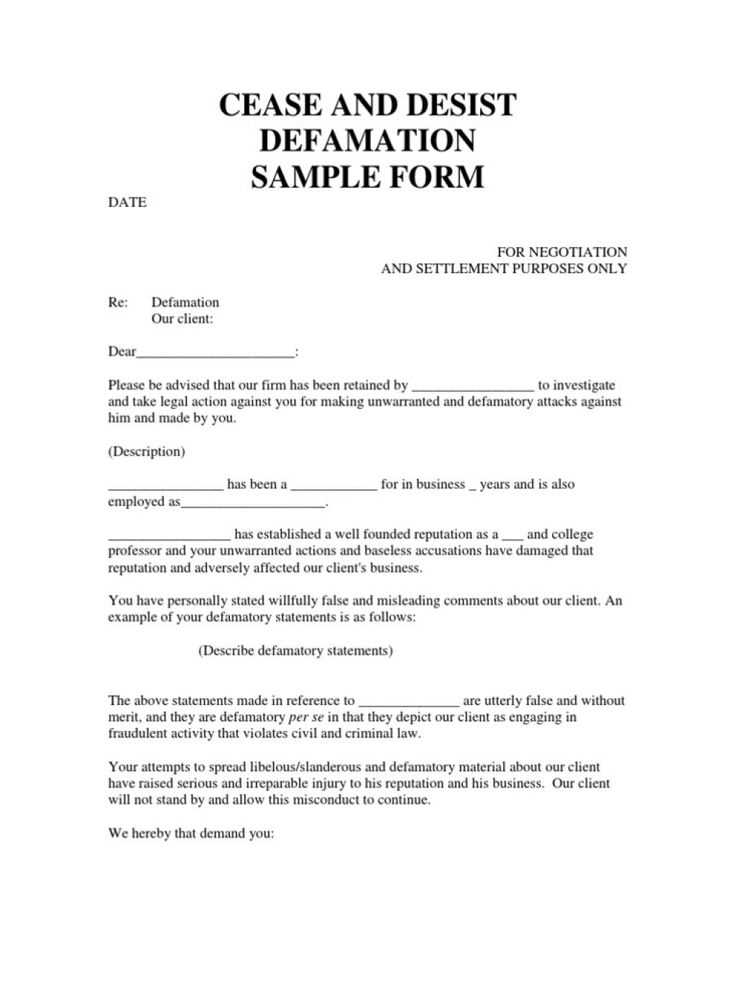
Start by identifying the false statement, specifying why it is damaging, and include evidence of its falsity if possible. Include a clear demand for the defamer to stop spreading the false information and remove any content related to the statement. The letter should set a deadline for compliance, typically 10 to 14 days, and notify the recipient of legal actions if they fail to comply.
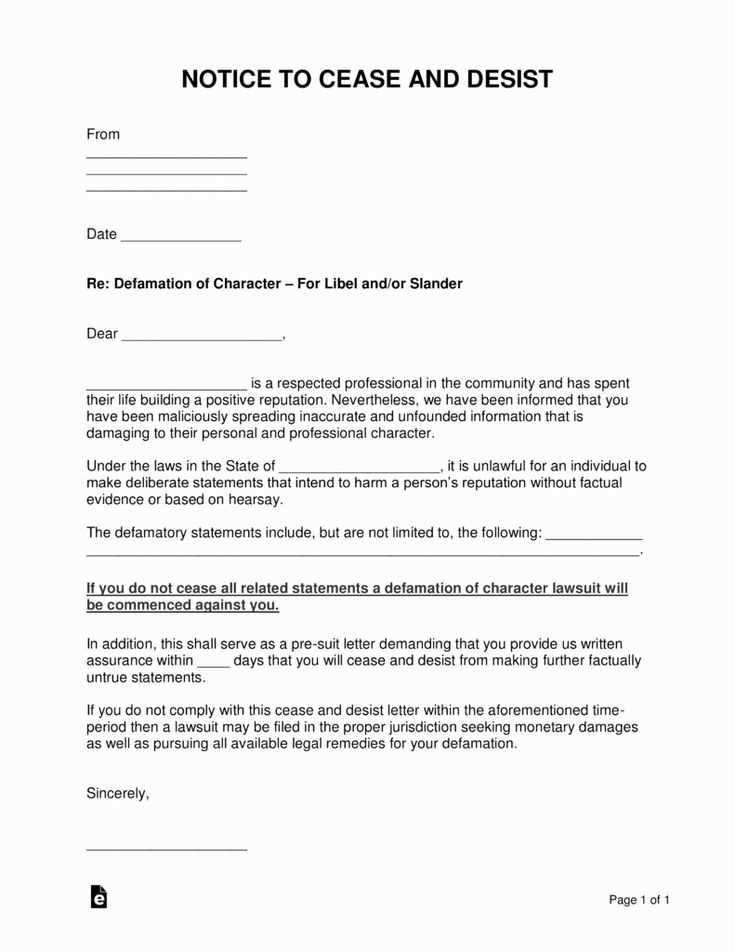
How to Respond to Defamation Claims
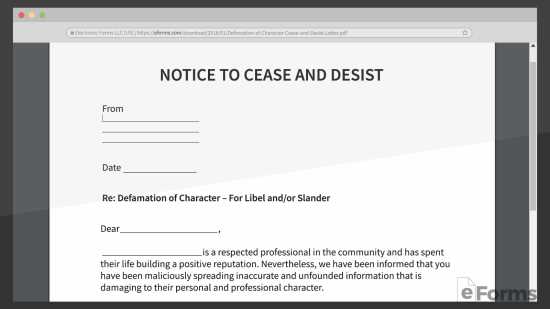
If you receive a defamation cease and desist letter, review the claims carefully. If the statements are true, gather evidence supporting your position. If the statements are false, provide evidence of their inaccuracy and communicate your willingness to resolve the issue without going to court. The letter should show your intent to settle the matter amicably while protecting your rights.
Issuing a cease and desist letter is appropriate when a person or entity is spreading damaging false statements that affect your reputation. It is essential to act promptly before the damage becomes widespread and harder to reverse.
If the recipient ignores the letter, you may need to pursue legal action. Ignoring a cease and desist letter could result in court proceedings or financial penalties, depending on the severity of the defamation.
After sending the letter, monitor the situation to ensure compliance. If the defamatory actions continue, consult with an attorney to discuss further legal steps such as filing a lawsuit for damages or seeking an injunction.